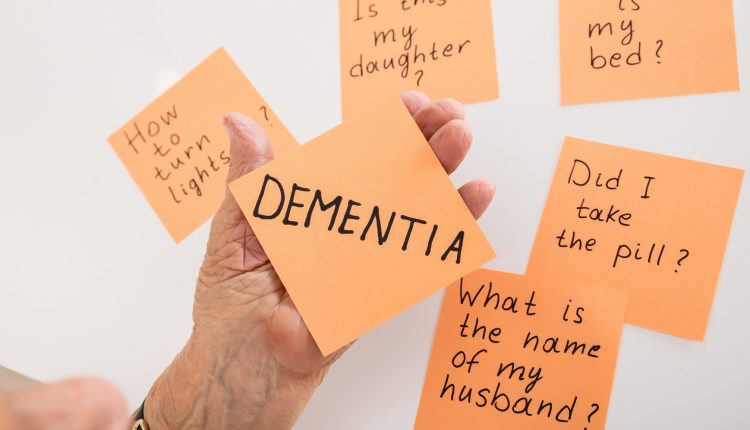
5-Minute Dementia Tests: Early Detection Tools
Millions of people around the world have dementia. Early detection and intervention are crucial parts of managing the disease and improving the quality of life for patients and their families. Several 5-minute dementia tests, including Alzheimer’s tests and online apps, have emerged as promising avenues for early detection in recent years. With these simple and convenient tools, you can assess cognitive abilities and identify potential signs of dementia from the comfort of your own home.
Contents
Understanding Alzheimer’s Disease
About 60-80% of all dementia cases are caused by Alzheimer’s disease. It leads to progressive deterioration in memory, reasoning, and thinking skills, ultimately impairing daily function. It is crucial to detect Alzheimer’s early so that early intervention and treatment can slow its progression.
The beta-amyloid protein fragment plays a significant role in Alzheimer’s disease. Beta-amyloid is produced and broken down naturally in a healthy brain. In Alzheimer’s, this process is disrupted, resulting in beta-amyloid plaques in the brain.
Researchers asked more than 4,000 people to remember pictures of images they saw. Beta-amyloid plaques associated with Alzheimer’s were more common in the lower-scoring groups. As a result, Alzheimer’s experts say simple memory tests could be helpful for detecting the disease early.

The Need for Quick and Convenient Dementia Tests
Memory problems and difficulties solving problems are the first signs of Alzheimer’s disease. Cognitive tests that are quick and convenient would allow for early detection of cognitive impairment, allowing for timely intervention and better disease management.
It is often necessary to undergo extensive medical history evaluations, extensive neuropsychological assessments, and brain imaging procedures like positron emission tomography (PET) or magnetic resonance imaging (MRI) in order to diagnose Alzheimer’s disease. Despite their accuracy, these methods are expensive, require specialized equipment, and cause inconvenience for patients, which can delay diagnosis and treatment.
Identifying signs of Alzheimer’s and dementia is easy and convenient with Alzheimer’s and dementia tests. As a preliminary screening tool for further evaluation, these tests aim to provide a quick snapshot of a person’s cognitive abilities.
Benefits of Online Dementia Tests
Dementia detection apps can help identify cognitive decline early and monitor it. These apps make screening at home or in the clinic easy. Individuals and their caregivers can monitor changes in memory, attention, and other cognitive functions over time by engaging in regular cognitive assessments. Detecting Alzheimer’s disease early allows for timely treatment, which may slow its progression and improve the quality of life for affected people. Additionally, these apps allow individuals to actively participate in maintaining their cognitive health, promoting awareness and empowering them to take proactive steps.
One of the significant advantages of online dementia tests is that they can detect cognitive decline early. Identifying subtle changes in cognitive abilities earlier is possible, which can lead to better management and treatment options.
There are many reasons why people hesitate to seek professional evaluation, such as stigma or privacy concerns. The 5-minute dementia tests are a discreet and confidential way to assess cognitive function, allowing individuals to take control of their health without feeling anxious or concerned.

Online Tests and Apps for Alzheimer’s
Smartphones and internet accessibility have made dementia screening easier with several Alzheimer’s apps and online dementia tests. These apps provide quick and accurate assessments of cognitive ability.
Here are the best online tests for Alzheimer’s and dementia detection.
1. Alzheimer’s App
To assess your cognitive abilities and determine whether you are at risk for Alzheimer’s, you can use this Alzheimer’s app. The Alzheimer’s App assesses memory, attention, language, and problem-solving skills. The test is easy to administer and user-friendly for users of all ages and backgrounds.
To slow the disease’s progression and maintain quality of life, early detection is crucial. This test is designed to detect the earliest symptoms of Alzheimer’s and dementia.
The test involves a series of cognitive exercises and tasks to evaluate your cognitive abilities. Additionally, some tasks are presented in a game-like format, which makes them engaging and enjoyable. Due to the online nature of the test, you may take it at any time convenient.
After completing the test, you will receive a comprehensive report regarding your cognitive abilities. In addition to identifying areas for improvement, the information will suggest activities and exercises you can perform to strengthen and maintain your cognitive function. The Alzheimer’s Test tracks and compares your previous results over time. Detecting early declines in your cognitive abilities is possible with this feature.
2. Brain Test
The Brain Test app tests cognitive function and looks for signs of Alzheimer’s disease. The app uses tests and tasks to measure memory, attention, language, and visual-spatial skills.
3. CogniFit
Several cognitive assessment tools are available through CogniFit, including memory tests, attention tests, executive function tests, and other cognitive tests. Screening for Alzheimer’s and other cognitive disorders is possible with this test.
4. MindMate
The MindMate app provides cognitive training, brain games, and lifestyle tips to support brain health. This can help individuals maintain their cognitive function and identify signs of cognitive decline, though it is not exclusively designed to detect Alzheimer’s disease.
Final Words
Even though 5-minute dementia tests have their limitations, they are still helpful in detecting Alzheimer’s disease at an early stage. These tests for dementia and Alzheimer’s aim to raise awareness about potential cognitive decline and encourage individuals to seek further evaluation from healthcare professionals. With clinical assessments, medical histories, and other diagnostic tools, online dementia tests can contribute to a comprehensive evaluation.
Is there any research on the connection between Alzheimer’s and diabetes? It scares me to death every time my husband forgets a few things; he has type 2 diabetes.
Yes. “Several research studies following large groups over many years suggest that adults with Type 2 diabetes have a higher risk of developing Alzheimer’s.”
There’s no need to be scared of something that may or may not happen. Encourage him to have a healthy lifestyle to manage his blood sugar level.
A cognitive test is a great way to diagnose dementia. Doctors can also use these tests. For a more accurate diagnosis, they use MRI and scans, but these tests can be done in less than 10 minutes.